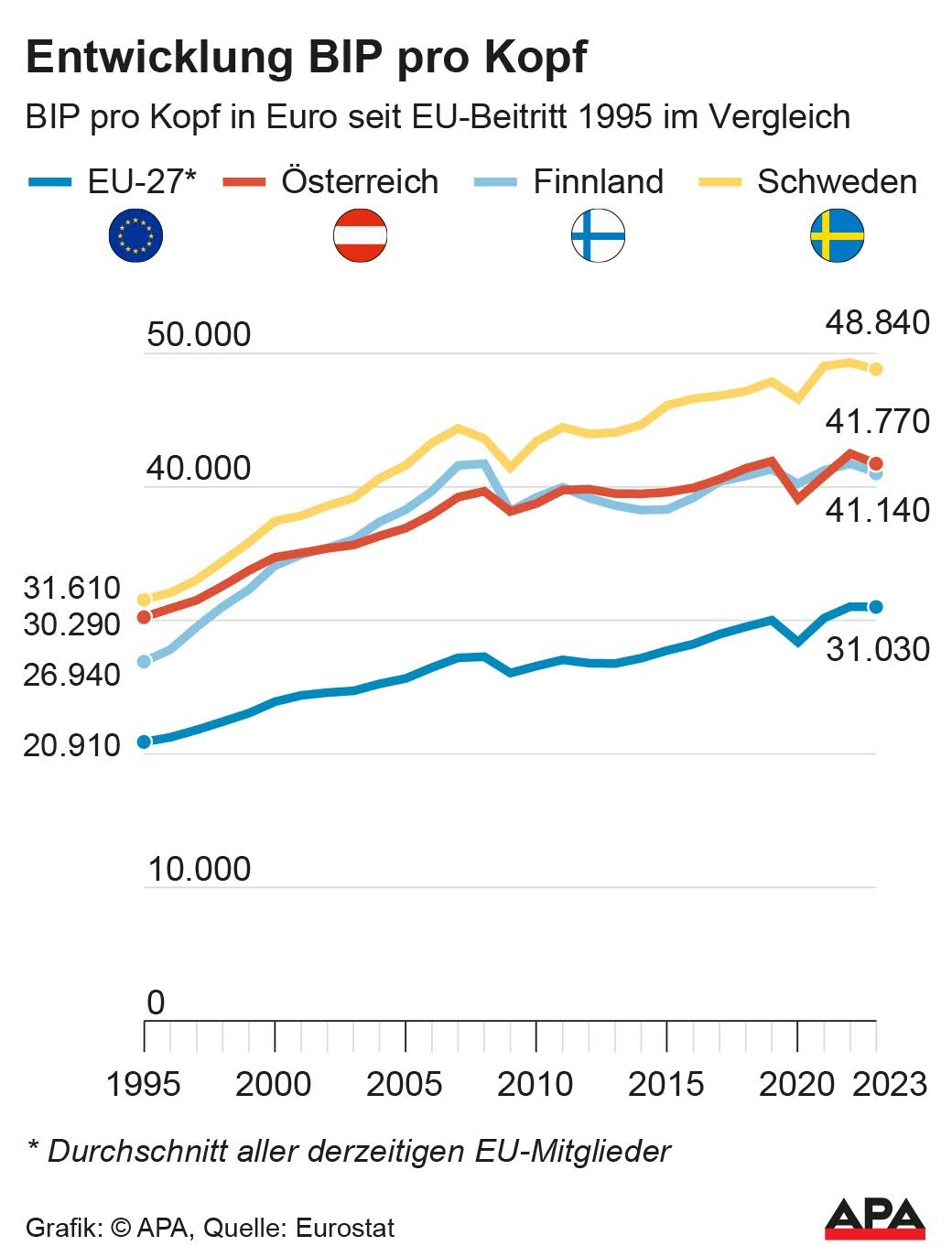Domestic Politics or EU Influence? What Weakens Our Economy
Membership in the EU has been a success story for Austria's economy. Especially at the beginning and from 2004 onwards, the gross domestic product recorded strong growth. However, since 2019, the picture has clouded compared to other EU countries. The main problem: "We have been hit harder by the pandemic and the energy price crisis than other member countries," said Wifo economist and WU Vienna Professor Harald Oberhofer in an interview with APA.
This has more to do with national politics and little to do with EU membership. In general, the gross domestic product is "the most difficult of all indicators" to measure the influence of EU membership on economic success, as it contains all possible effects that have nothing to do with the EU. But in general, Austria as a small, open economy would be "globally insignificant" on its own and could only assert its own interests in conjunction with the other EU states. This applies even to a larger country like Germany. Only through EU membership does Austria gain economic weight on the world stage.
The Biggest Asset for Austria is the Internal Market
"Our biggest asset is the internal market," says Oberhofer about the impact of EU membership on the economy. This leads to more competition, better and cheaper products, and more choice for consumers. And while there is currently much complaint about the excessive bureaucracy in the EU, this does not affect common standards. These are essential so that not every country has to produce its own product variants - like a special lighting for cars sold in Sweden, as Oberhofer recalls.

However, the EU has little room for manoeuvre, as its budget only accounts for one percent of the EU's GDP, Oberhofer points out. Therefore, it has to regulate to steer the economy - "this can of course be excessive". The supply chain law, which requires the collection of all possible data internationally up to the last supplier, could well fall into this category. Oberhofer is "sceptical that it will achieve its goal", at the same time it could reduce the competitiveness of the domestic economy.
Politicians Should Actively Engage in the EU
The economist reminds politicians who complain about such EU rules that Austria has full participation rights in the EU bodies. Representatives could contribute differently "and not make decisions at EU level, only to distance themselves from them as a government two minutes later". This is also a "fundamental problem in the relationship between the nation-state and the European Union".
"Naturally", Austria has also become more innovative due to competition in the internal market. Because only through innovations, research and development, high-tech products and specialisations, in other words, "being better than the rest of the world", can a high-price country like Austria remain competitive.
Major Challenges at EU Level
Austria has benefited from EU membership, not least because of its geographical location and the eastward expansion of the Union. However, there are also major challenges at the European level, such as dealing with new technologies and demographic change. The EU must ensure that it exploits its potential and secures prosperity with an ambitious competition policy.
The Union was founded by 15 similar countries, the rules of the time no longer fit for the almost doubled and much more diverse Union. To raise the potential of the EU, we need to talk about the distribution of competences, what should be decided at EU level and what nationally. Oberhofer, for example, advocates a joint expansion of the railway - but this would require a corresponding budget. The fight for decarbonisation should also be conducted together. A "more efficient" relationship between the EU and nation-states would, however, in certain areas also mean giving up elements of national sovereignty and is "very difficult to discuss in Europe".
(APA/Red)
This article has been automatically translated, read the original article here.





